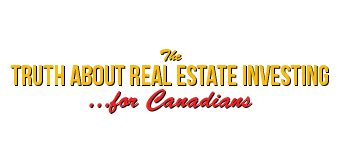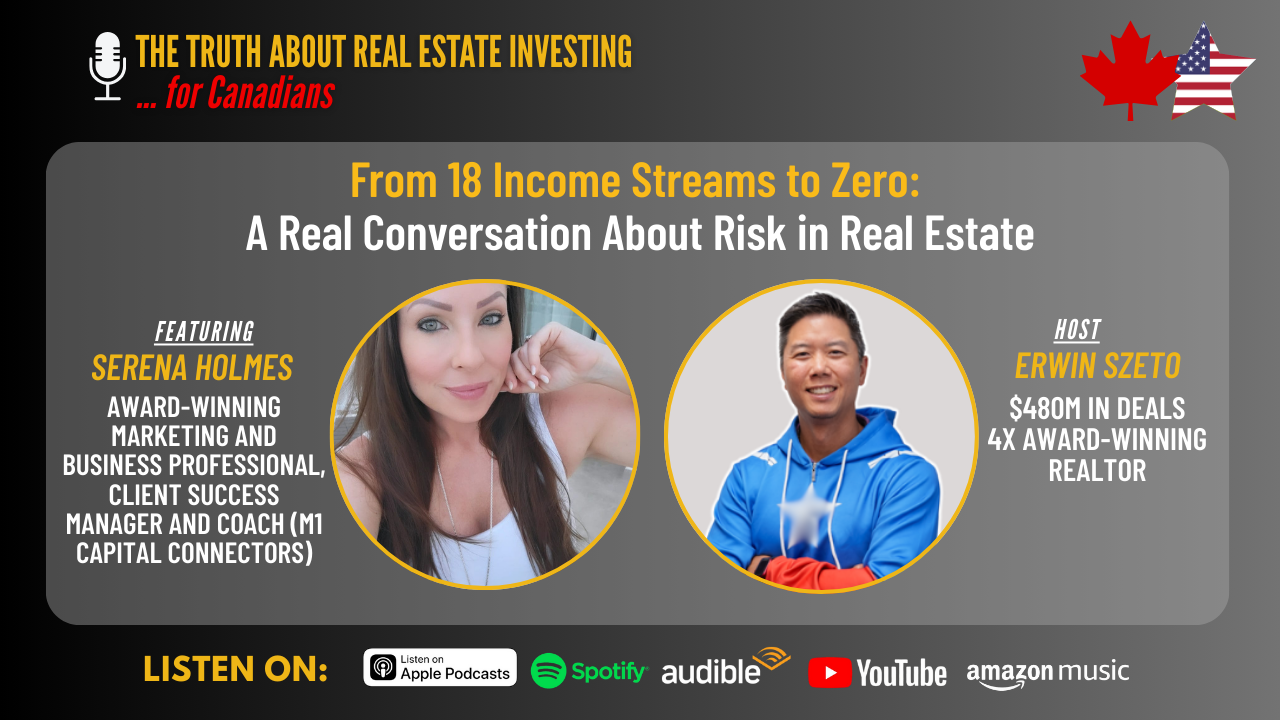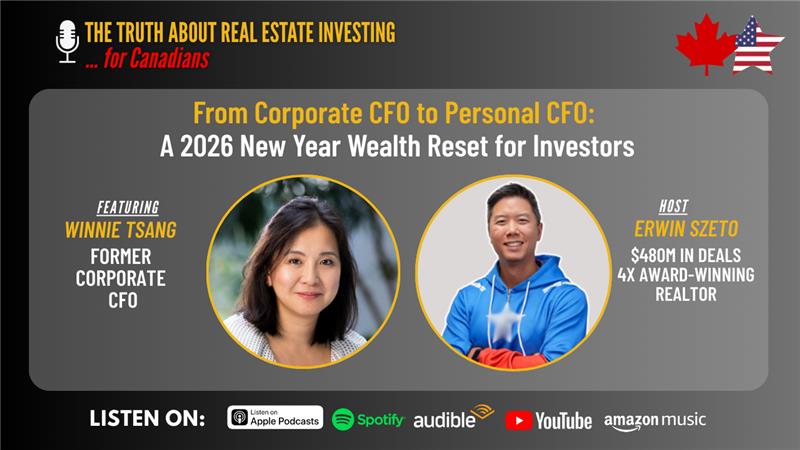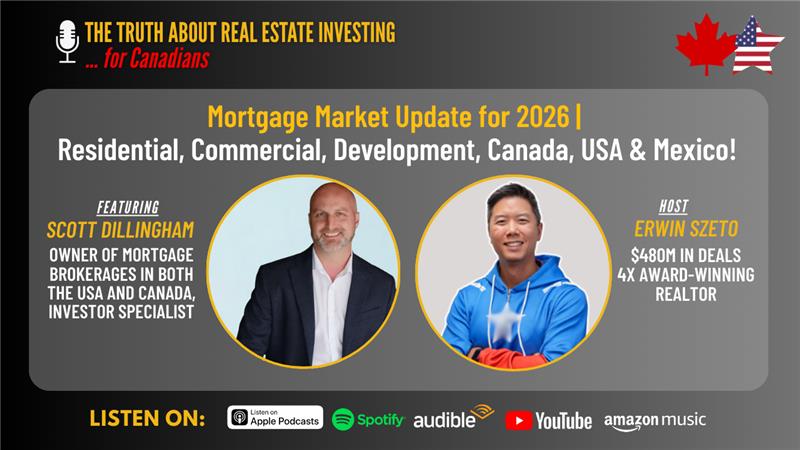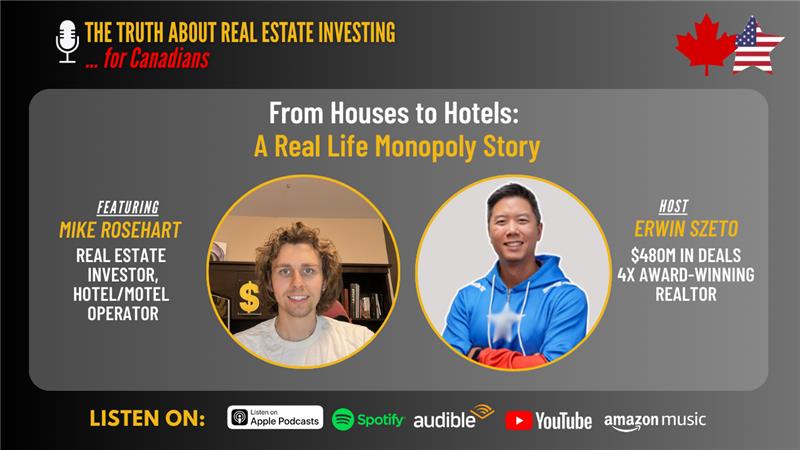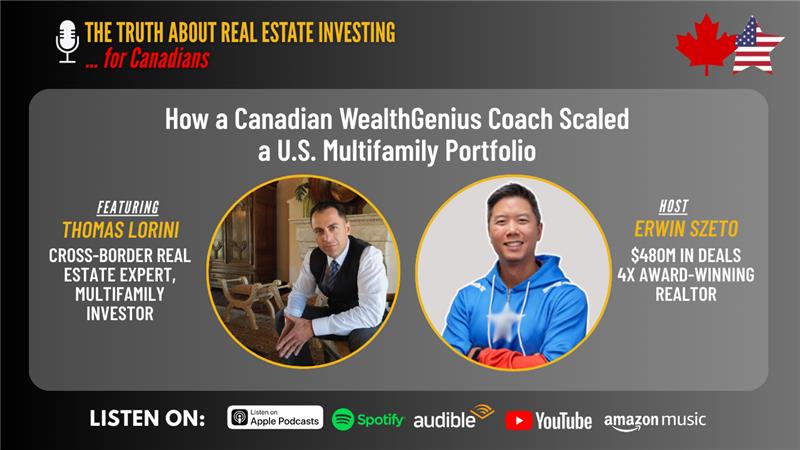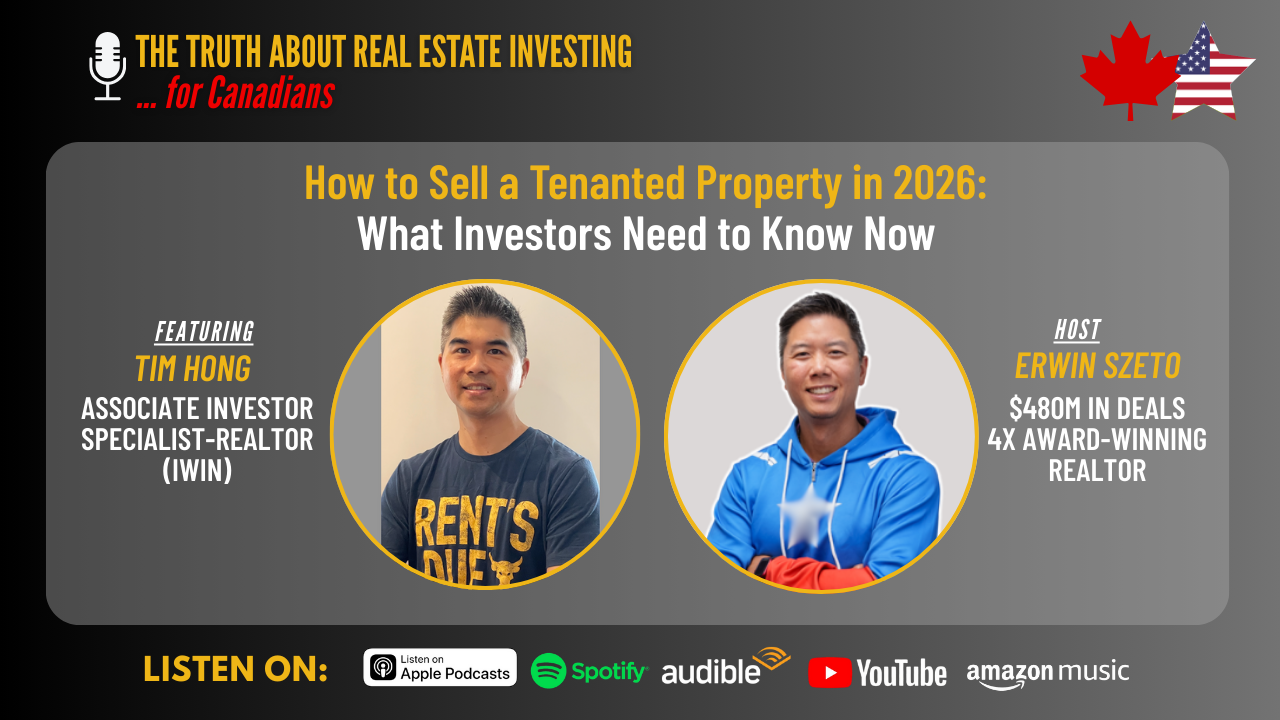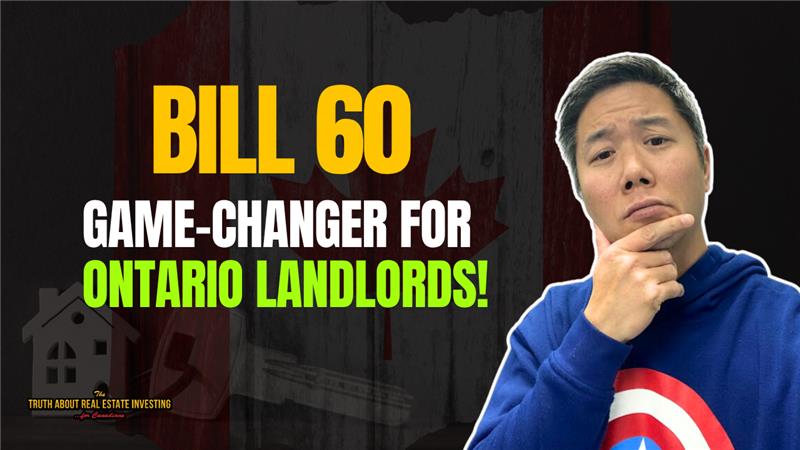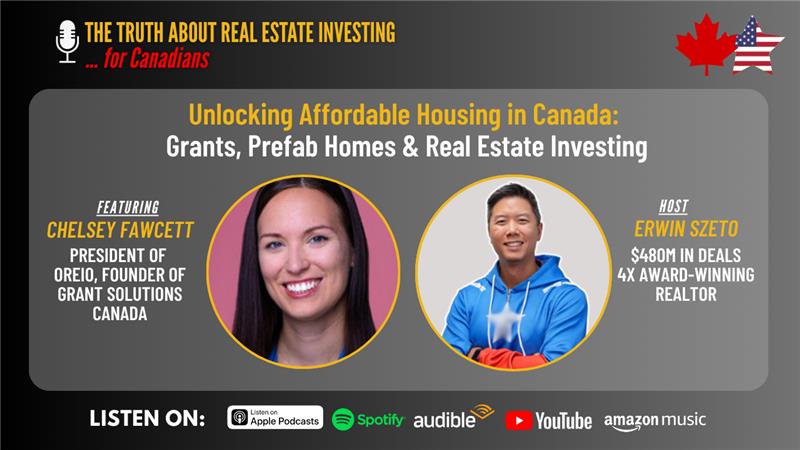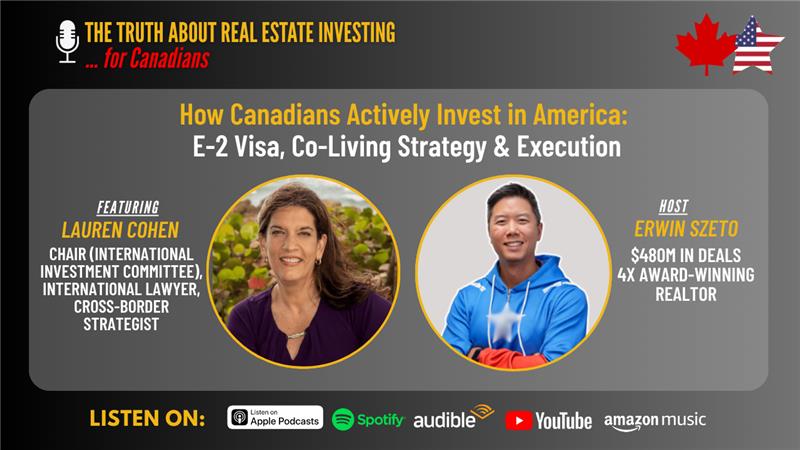How a $14 Million Portfolio Evaporated: The Adam Kitchener Story
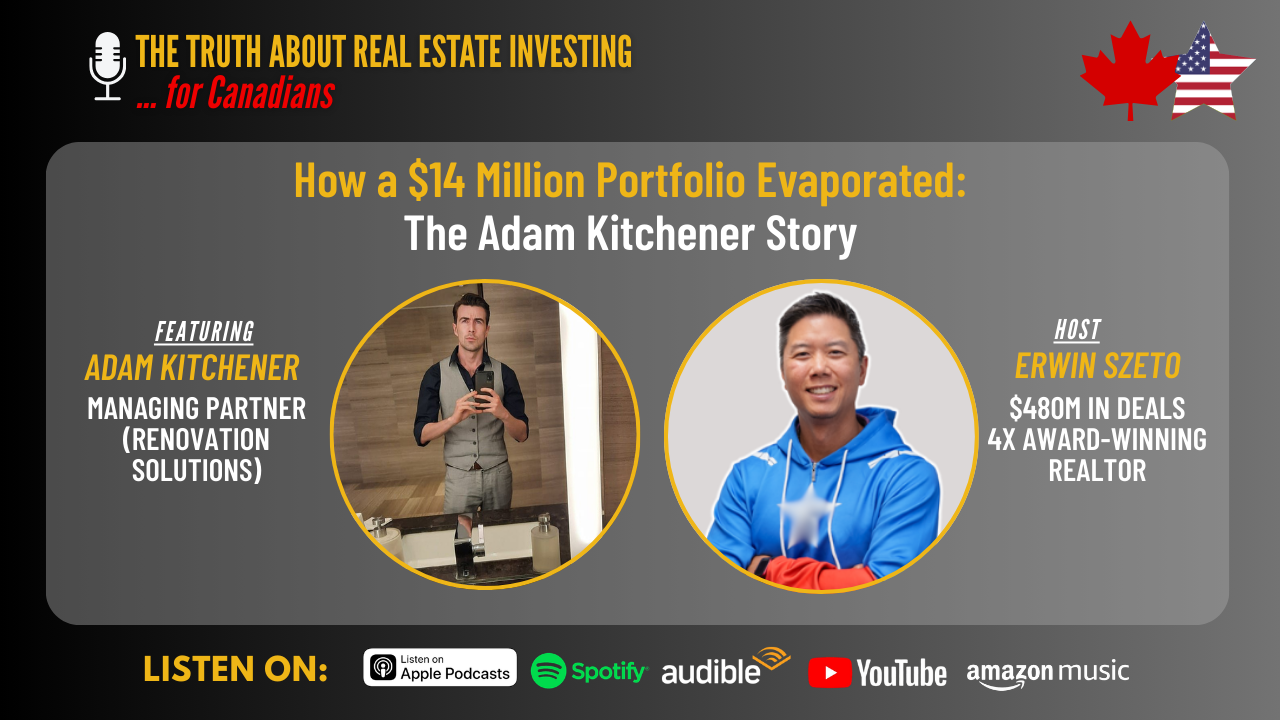
Recorded: February 2026
Host: Erwin Szeto, The Truth About Real Estate Investing for Canadians Podcast
Guest: Adam Kitchener
Folks, welcome back to the show.
It is every real estate investor’s nightmare. You follow the rules, use the BRRRR strategy. Build a portfolio worth over $14 million. And eventually, you achieve what looks like financial freedom.
And then, while you are on vacation in Thailand, your debit card stops working.
You call the bank, and they tell you: The CRA has frozen everything.
This week on The Truth About Real Estate Investing for Canadians, I sat down with Adam Kitchener. If you’ve been around the Hamilton/Ontario investing scene, you likely know Adam. He started investing in 2016, built a massive portfolio, and ran a property management company.
But for the last three years, Adam has been fighting a war with the CRA that cost him almost everything.
The Audit That Spiraled
Adam shares the harrowing details of how a routine audit turned into a financial death spiral. It wasn’t about fraud or tax evasion. It started with simple misunderstandings, auditors asking why he didn’t charge HST on residential rent (you don’t) or asking if he had a cash register for his rental business.
Despite having meticulous records, the CRA froze his personal accounts. Because he had personally guaranteed his mortgages (a common practice for investors scaling up), the banks saw the CRA judgment and pulled his funding.
The “Asset Rich” Trap We talk a lot about being “Asset Rich, Cash Poor.” Adam’s story is the extreme version of this. He had millions in equity, but when the CRA froze his liquidity, he couldn’t service the debt or pay his contractors.
He was forced to surrender properties to the bank to avoid further legal battles. He went from managing a $14M portfolio to working three jobs just to pay back his contractors, because Adam is a man of integrity who refused to let his tradespeople suffer for his tax battle.
The Mental Toll I want to thank Adam for his vulnerability in this episode. He opens up about the darkness of losing his identity as a “successful investor.” He discusses the mental health toll, the suicidal thoughts, and the moment he realized that his net worth did not define his self-worth.
The Rebuild: Renovation Solutions Adam is still standing. He realized that the “hustle” of property management and massive portfolios wasn’t the only way. He has returned to his roots, launching Renovation Solutions, a contracting business focused on helping other investors turn units over efficiently. He’s rebuilding, but this time with a focus on simplicity and bulletproof corporate structure.
🎧 Listen to the full episode here
10 Real Estate Tax & Legal Questions Answered in This Episode
1. Can the CRA freeze my bank account without notice?
Yes. Adam discovered his accounts were frozen only when his debit card was declined while on vacation in Thailand. The CRA stated they had sent a letter, but because he was traveling, he did not receive it in time to respond.
2. Do landlords have to charge HST on residential rent in Ontario?
No. Long-term residential rent is exempt from HST. However, Adam shares a story of an auditor specifically asking why he wasn’t charging HST on his rental income, highlighting the importance of having a knowledgeable accountant to defend you against auditor errors.
3. What happens to my mortgages if the CRA sues me?
If you have personally guaranteed your corporate mortgages (which is common for real estate investors), a CRA judgment against you personally can trigger a “default” clause with your lenders. Adam’s lenders called his mortgages not because he missed payments, but because of the CRA judgment.
4. What is “Audit Insurance” and do investors need it?
Audit insurance covers the professional fees (accountants and lawyers) required to defend you during an audit. Adam notes that defending himself cost thousands of dollars he didn’t have access to because his accounts were frozen. Having this insurance can prevent you from running out of cash during a dispute.
5. Can a general accountant handle a complex real estate audit?
Adam advises against using a generalist. He stuck with a “good guy” accountant too long, but when the complex audit hit, the workload was overwhelming. He recommends upgrading to a specialist firm before you think you need one.
6. How does “Separation of Church and State” apply to real estate assets?
Adam emphasizes the need to completely separate personal assets from business assets. Because he had assets in his personal name (and personal guarantees), the CRA was able to seize/freeze personal funds that strangled his business operations. Proper corporate structuring creates a firewall.
7. Why would a bank call a mortgage if I’m making payments?
Even if you have never missed a mortgage payment (as Adam hadn’t), lenders monitor your credit and legal standing. A substantial tax lien or judgment effectively kills your creditworthiness, causing lenders to view you as high-risk and call the loan.
8. Is property management a scalable business model?
Adam built a large property management company but found it difficult to scale profitably due to the high volume of “bosses” (landlords) and tenants. He eventually closed it to focus on his own portfolio, noting it is a tough, low-margin industry.
9. What triggers a CRA audit for investors?
While sometimes random, Adam suspects his audit was triggered by a discrepancy between a year of low taxable income (due to write-offs) followed by a year of high asset acquisition (refinancing). The CRA looks for lifestyle spend that doesn’t match reported income.
10. How long does a CRA audit take?
Adam has been dealing with this for three years. It is not a quick process. He warns that investors need the stamina and liquidity to survive a multi-year battle, as the CRA can move very slowly while your assets remain frozen.
🎧 Listen to the full episode here
As always, thanks for listening (all 17 of you!), and keep hustling. If you’re not already on my free email list, you can join at:
👉 www.truthaboutrealestateinvesting.ca
(Add your name and email on the right-hand side.)
That’s how you’ll hear about new episodes, webinars, and live events like the Wealth Summit, where in-person seats sold out in a week.
Being on the list helps you avoid disappointment. More importantly, it helps you avoid financial losses and fraud. We’ve seen this with Fortress Developments, Epic Alliance, and others currently in hot water with the Ontario Securities Commission. Cons and frauds share common patterns, and learning to spot them early matters.
To Listen:
Audible: https://www.audible.ca/pd/B0GMY9X9W1?source_code=ASSGB149080119000H&share_location=pdp
YouTube: https://youtu.be/I_GmtpWkkpU
You’ve Built Wealth. Now It’s Time to Understand It.
You’ve Built Wealth. Now It’s Time to Understand It.
After dozens of consultations, I’ve noticed the same pattern again and again: most investors have built real wealth, but they’re not confident they can retire from it. They’re sitting on $2M–$5M in property but feel cash-flow poor. They’re paying more tax than they should because everything is held in personal names. They have no liquidity, no insurance strategy, and no clear plan for what happens if something happens to them. And almost every single client tells me the same thing: “I don’t actually know what retirement looks like for us.”
Real estate builds equity, but it doesn’t automatically build freedom. Without a coordinated plan for taxes, income, protection, and exit strategy, investors often end up working harder in retirement than they did in their 30s. That’s why I created the Wealth Freedom Blueprint – a simple, practical guide to help you understand where you stand today, what gaps are costing you money, and how to turn the wealth you’ve built into a life you can actually live.
Download your free Wealth Freedom Blueprint
Final Thoughts
Whether you’re building wealth, protecting it, or preparing to transition it, you deserve a clear, tax-smart strategy that works in real life.
That’s what iWIN Wealth Planning is here for.
This is how we’re creating predictable, stress-free wealth for Canadian families…
so you can enjoy the life you’re building.
Book your Wealth Planning Call
Sponsored by… Me!
This episode isn’t sponsored—except by my wife Cherry and me. Real estate investing is our life. It’s helped us build wealth and achieve peace of mind about retirement and our children’s future.
Till next time—just do it. I believe in you.
Erwin Szeto
W: erwinszeto.com
FB: facebook.com/erwin.szeto
IG: @erwinszeto
Disclaimer
As a committed advocate for transparent and responsible investing, I want to disclose that I am an Advisor to SHARE SFR (Single Family Rental). I hold equity in the company and earn referral commissions from clients I refer.
My endorsement of their model—focusing on positive cash flow and direct ownership—is based on personal experience and belief. Still, every investor should do their own due diligence.
